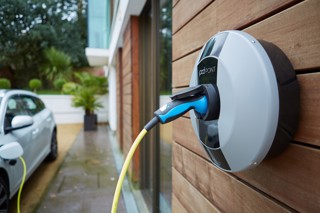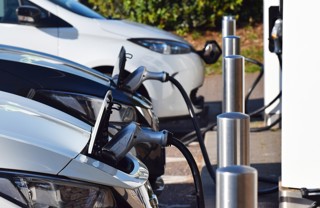Business Secretary Kwasi Kwarteng has highlighted the need to plug gaps in the UK’s charging infrastructure and technicians’ skillset to help drive electric vehicle (EV) adoption.
Addressing the Virtual Smart Transport Conference, Kwarteng said that EV infrastructure remains an issue that “comes up all the time” and sought to assure delegates that efforts were being made to drive change.
He said: “Anecdotally, lots of people out there want to adopt electric vehicles. But one of the main things that is stopping people doing so is the lack of provision for charging points. And this is something which the Government is fully aware of.
“We have committed an extra £300m on top of the initial £500m to really kick-start the roll out of electric vehicle charging points. And this is critically important.”
The UK Government has come under fire for its EV policies in 2021.
Last month a House of Commons Public Accounts Committee report into the transition to zero emission vehicles highlighted the lack of “a clear published plan” to meet the UK Government's goal of banning new petrol and diesel car sales by 2030.
And following its decision to make further cuts to the plug-in car grant (PiCG) back in March Stellantis boss Alison Jones told AM that the counter-intuitive policy had car buyers “thinking again” about making the switch to an electric car.
Public charge point provision is another major hurdle for many potential owners to overcome.
There are currently more than 42,000 charging points, according to Zap-Map, and estimates vary as to how many will be required by the time the ban on the sale of new petrol diesel cars and vans is introduced in 2030 (with hybrids phased out by 2035).
Think-tank Policy Exchange believes 400,000 public chargers will be required by then but the Society of Motor Manufacturers and traders (SMMT) puts it significantly higher at 2.3 million – equating to 700 charge points being installed daily to the end of the decade.
Much rests on the Government’s infrastructure strategy, due to be published this year, which will set out an action plan for the roll out of charging infrastructure to meet the 2030 ban.
At this month’s Kwarteng acknowledged the importance of ensuring there are enough skilled technicians to work on electric vehicles as demand for EVs increases.
The Government’s Green Jobs Taskforce, which was jointly set up by the Department for Business, Energy and Industrial Strategy (BEIS) and the Department for Education in November last year, is designed to “push forward the skills agenda”, according to Kwarteng.
“Already we are identifying skills gaps and we want to try and train people for the new economy, the ‘green’ economy,” he said.
Input from people involved in the sector is “critically important”, he added.



















Login to comment
Comments
No comments have been made yet.